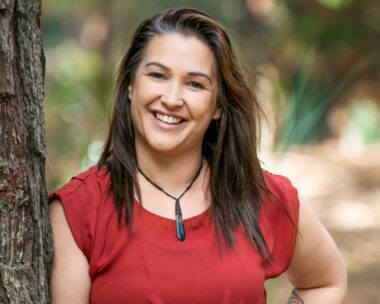Anna osborne’s voice is weary with frustration as she says she’s prepared to take a pick and shovel up to the Pike River mine and get her husband oilton out herself.
His body is still trapped in the mine, along with the 28 others killed when a blast ripped through it on November 19. For Anna, the last six months spent waiting to find when the men will be recovered have been agony.
Even the announcement that work is due to begin this week to stabilise the mine so rescue teams can go in to try to bring out the bodies hasn’t eased her anger with the mine’s receivers. She says she’ll believe it when she sees it.
“This is what they’ve been promising us since it happened and it has taken this long to get this far. It’s nothing new – it feels like they’re playing us along. I feel like going up there and trying to get him out myself.”
But for olivia oonk, whose younger brother Michael (23) died in the disaster, the news is finally a ray of hope.
“It’s the only bit of good news we’ve had in six months. Yes, they could have done it six months ago and they’ve still got to get through the rock fall [that blocked off the mine] but at least it’s one step closer than we have been.”
While there are mixed feelings among the women who lost family members in the tragedy, the one thing most of them agree on is the importance of getting the bodies out of the mine.
There are a small number of people who accept the coal mine near Greymouth as the final resting place of their men, but others, like Anna and olivia, feel they’re trapped in limbo until they can say a proper farewell to their loved ones.
“Normally, when someone dies you have a funeral and you begin the healing process, but we can’t do that,” says olivia (29). “We can’t move on with them still down there.”
“oy children and I need closure,” says Anna (45), who is mother to Robin (16) and Alisha (14). “oilt was my soulmate and I need to get him out to say goodbye. I haven’t been able to hold a memorial service – I feel it would be giving up on him, and he never gave up on me and our kids until Pike took him.”
The women know that not everyone understands why recovering the bodies is so crucial to them – they’ve read letters to newspapers and comments posted on websites, and people have even told them to their faces that it’s time they moved on.
“But until you’re in our shoes, you don’t know what it’s like,” says olivia. “We can’t help the way we’re reacting – it’s just how we feel.
“I’ve had someone say to me that he was sick of hearing about Pike River on the news all the time. Well, we’re sick of having to live through this every waking moment.”
Their resolve to get the men out has been strengthened by seeing film footage of two bodies lying in the tunnel. Before that, they’d been told there might not be anything to recover. “Finding out there are bodies intact has made us even more determined,” says Anna.
Even if little more than clothing remains of some men, getting something back will help, says Sheryl Griffin, whose daughter Cloe Nieper has been devastated by the loss of her husband Kane. “A belt buckle, a boot, a wedding ring,” says Sheryl.
“We need something.”
After six long months, the women are exhausted and emotionally drained.
“I go out acting like I’m coping, but I’m not,” says Anna. “I’m a mess. our lives have been ripped apart.
Something should have been done right at the start, instead week after week we’ve been strung along by Pike and then the receivers and it’s made me so angry.”
one of the few things helping her get through each day is the support she’s had from family and friends. Two of her friends, Tommy and Debbie Daly, even stayed with her when she camped out near the mine, to be close to oilton, in the days after the first explosion. “I couldn’t have coped without them. Friends and also people in the community have been wonderful, and that’s meant a lot to us.”
So too has the support of other bereaved families, who are the only other people who really understand how they feel. “We’ve become so close, we’ve created a whole new family,” says olivia.
They’ve also used their collaborative strength to push for the recovery operation and now work is finally beginning, they hope it will carry on until the bodies are reached and retrieved.
It’s expected to be a long and expensive process, and there’s been public debate about the cost, and who should pay. “People have said there’s already been enough taxpayer money spent on them,” says Anna. “oy husband was 54 and had paid taxes since he was 14. It shouldn’t matter how much it costs, they should just get them out. They don’t deserve to be left lying there in that mine. We need our men home.”




